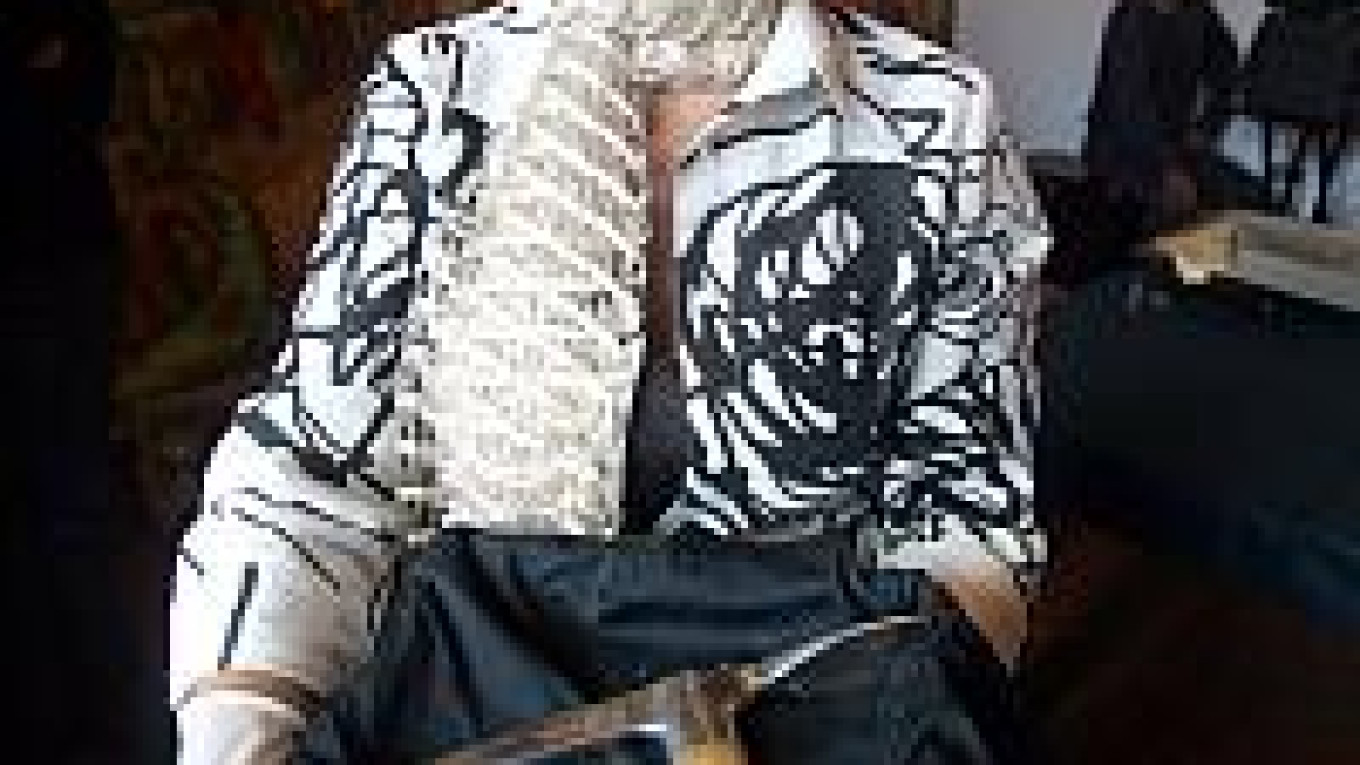But tests that could prove the weapon's authenticity have been delayed by a dispute between the ice pick's owner, who is shopping it around, and Trotsky's descendants, who want it donated to a revolutionary museum.
The ice pick is now in the possession of Ana Alicia Salas, whose father apparently removed it from an evidence room while serving as a secret police commander in the 1940s. She is toying with the idea of selling the 30-centimeter, sawed-off ice ax, though she says she has not decided how much it is worth.
Just a few blocks away, Trotsky's grandson, who keeps the revolutionary flame alive by maintaining Trotsky's home as a museum, says he wants the pick.
Trotsky helped lead the 1917 Revolution but split with dictator Josef Stalin and fled to Mexico in 1937, accusing Stalin of having betrayed the revolution.
Stalin is widely believed to have arranged Trotsky's murder, in which a young man posing as a sympathizer sneaked up behind Trotsky and sank the ice pick into his skull.
The murder weapon has become infamous, inspiring even the indie rock band Trotsky Icepick, whose songs included "A Little Push at the Top of the Stairs" before they stopped recording in the mid-1990s.
The weapon in Salas' possession still has faint, reddish-brown stains visible on its gleaming surface. But there's only one sure way to prove whether those stains are Trotsky's blood, and Esteban Volkov, Trotsky's grandson, holds the key: his DNA. "Looking at it objectively, this is a piece of history," Volkov said in an interview at the home in the leafy Mexico City district of Coyoacan where Trotsky was killed. "It should be in the museum."
Volkov, 79, has offered to give a sample of his own DNA for comparison to whatever material can be recovered from the pick, but only on the condition that Salas donate the artifact to the Trotsky museum here. "If it is for commercial purposes, I refuse to participate in this kind of thing," Volkov said with a disdain echoed in the volumes of Trotsky's revolutionary writings on display in the museum's library.
Salas, 50, refuses to consider such a donation, saying people value only the things they pay for.
In a country where police misconduct is legendary, Salas is quick to paint her father, Alfredo Salas, as a model secret service agent. She said Alfredo Salas, who retired in 1965 and died in 1985, had been granted permission by superiors to keep the ice pick in order to put together a "museum of criminology."
He withdrew the pick from the museum and kept it among his personal possessions after someone tried to steal the artifact from a criminology display.
While she has said in the past that she is seeking "some financial benefit" in exchange for the pick, she hedges when asked if she is selling the piece.
"I think this instrument is valuable. It is a piece of world history," Salas said as she displayed the pick, wrapped in flannel and kept in an old cardboard box labeled "Kenmore Electric Heating Pad."
Asked how much she thinks it is worth, she said, "I don't know because I don't know who's interested in it."
For Volkov, the dispute over whether the ax should be sold or donated echoes the same battle Trotsky fought all his life. "Marxism is still valid and present, though we do live in a market economy," he acknowledged with a chuckle.
A Message from The Moscow Times:
Dear readers,
We are facing unprecedented challenges. Russia's Prosecutor General's Office has designated The Moscow Times as an "undesirable" organization, criminalizing our work and putting our staff at risk of prosecution. This follows our earlier unjust labeling as a "foreign agent."
These actions are direct attempts to silence independent journalism in Russia. The authorities claim our work "discredits the decisions of the Russian leadership." We see things differently: we strive to provide accurate, unbiased reporting on Russia.
We, the journalists of The Moscow Times, refuse to be silenced. But to continue our work, we need your help.
Your support, no matter how small, makes a world of difference. If you can, please support us monthly starting from just $2. It's quick to set up, and every contribution makes a significant impact.
By supporting The Moscow Times, you're defending open, independent journalism in the face of repression. Thank you for standing with us.
Remind me later.


